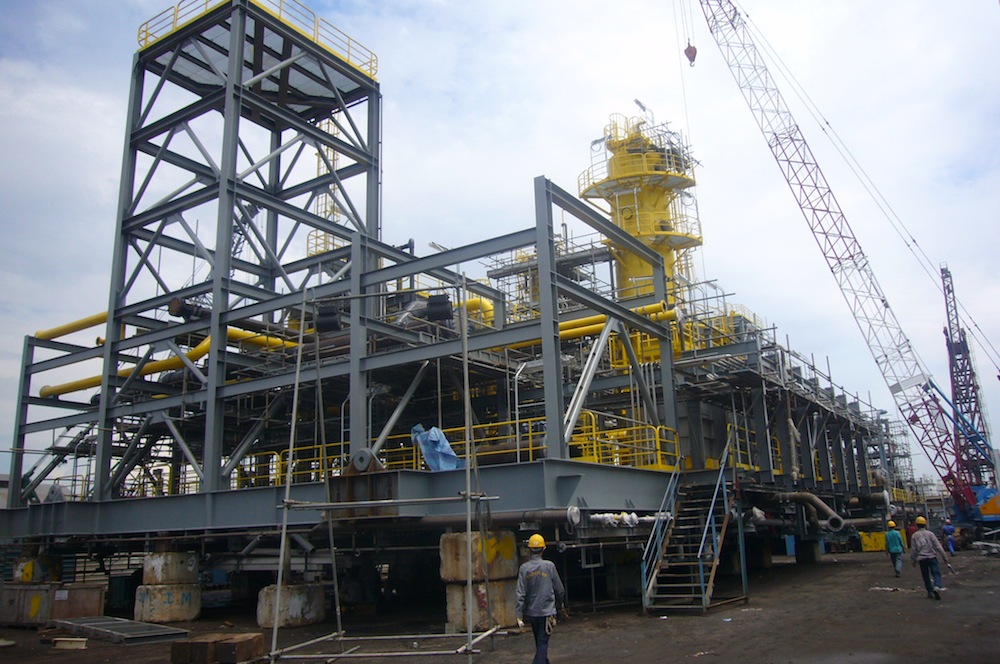When it comes to green and sustainability, the oil and gas industry is often perceived as the biggest offender to the environment. Aker Powergas Subsea have been promoting the use of subsea technology that will significant reduce the carbon footprint in the oil construction and production projects. Our CTO Thomas Cheah had the privilege of sitting down with C M Venkateswaran, CEO of Aker Powergas Subsea, for an exclusive interview last Saturday morning. We thought the sharing by Mr. Venkateswaran is highly inspirational for the players in the Oil and Gas industry, as well as other industries who wish to reinvent themselves for building a more sustainable and resilient supply chain.
GoSourcing: You are leading a company that is changing the industry. Can you describe briefly about the core technology of your company, and how it will transform the oil and gas industry to become more eco-friendly?
C M Venkateswaran: On the technology front, deep water compression is a classic example of how to save energy by putting the compressor near the source. This is not only energy efficient but also safe and proven through pilot trials. In terms of construction, the entire project is divided into "Modules" with emphasis on sustainable operations and maintenance. Modular construction economizes the usage of steel and makes the equipment design compact with lower carbon foot print. The modules are all fabricated at yards with a waterfront that will minimizes inland transportation.
C M Venkateswaran: On the technology front, deep water compression is a classic example of how to save energy by putting the compressor near the source. This is not only energy efficient but also safe and proven through pilot trials. In terms of construction, the entire project is divided into "Modules" with emphasis on sustainable operations and maintenance. Modular construction economizes the usage of steel and makes the equipment design compact with lower carbon foot print. The modules are all fabricated at yards with a waterfront that will minimizes inland transportation.
“Sustainable sourcing is on the agenda and is a prerequisite as a part of the SQiS approval process. We work not just on a transactional basis, but to align the company's values with our suppliers, and work as partners to achieve a common goal of sustainability, cost reduction, and resource management.” |
GoSourcing: Sustainability is often seen as something for the well-off, where it is only for the ones that have the time and money to care about saving the planet. What was the business thinking that led your company to make the shift towards sustainable sourcing?
C M Venkateswaran: Health, safety and environment is not just a requirement but a core value in the company. For example, for both direct and indirect sourcing, we have a mandatory SQiS (Supplier Qualification Information System) approval process. Sustainable sourcing is on the agenda and is a prerequisite as a part of the SQiS approval process. We work not just on a transactional basis, but to align the company's values with our suppliers, and work as partners to achieve a common goal of sustainability, cost reduction, and resource management.
GoSourcing: What would you say are the success criteria in developing and implementing a robust sustainable sourcing strategy?
C M Venkateswaran: The 3 key ingredients are leadership, vision and, policy. In our case, we are gradually moving towards standardized and catalogued products. We continuously foster and grow collaboration between clients, contractors, and suppliers. We develop suppliers across the globe to cater to customers of different geographical locations, and effectively reduce the transportation footprint. Last but not least, we encourage local content, which includes hiring personnel and suppliers from the area and providing training and education tailored for each location to ensure sustainability and relevance.
C M Venkateswaran: Health, safety and environment is not just a requirement but a core value in the company. For example, for both direct and indirect sourcing, we have a mandatory SQiS (Supplier Qualification Information System) approval process. Sustainable sourcing is on the agenda and is a prerequisite as a part of the SQiS approval process. We work not just on a transactional basis, but to align the company's values with our suppliers, and work as partners to achieve a common goal of sustainability, cost reduction, and resource management.
GoSourcing: What would you say are the success criteria in developing and implementing a robust sustainable sourcing strategy?
C M Venkateswaran: The 3 key ingredients are leadership, vision and, policy. In our case, we are gradually moving towards standardized and catalogued products. We continuously foster and grow collaboration between clients, contractors, and suppliers. We develop suppliers across the globe to cater to customers of different geographical locations, and effectively reduce the transportation footprint. Last but not least, we encourage local content, which includes hiring personnel and suppliers from the area and providing training and education tailored for each location to ensure sustainability and relevance.





